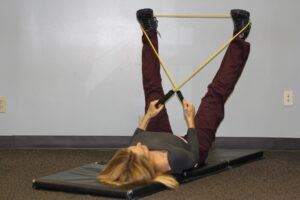Introduction
Embarking on a fitness journey is akin to setting out on an adventure. It requires preparation, motivation, and a clear map to guide you to your destination. Goal setting in fitness acts as this map, offering direction and benchmarks that mark your progress. Among the most effective strategies for setting these benchmarks is the concept of SMART goals—goals that are Specific, Measurable, Achievable, Relevant, and Time-bound. This guide aims to demystify the process of setting SMART goals for a successful fitness journey, ensuring that your road to fitness triumph is both enjoyable and effective.
Why Set Fitness Goals?
The Power of Clear Objectives
Setting clear fitness goals is more than a preliminary step; it’s the backbone of your entire fitness journey. These goals serve as your personal commitment to your health and well-being. They provide motivation by giving you something tangible to aim for, a reason to push through the tough days, and a sense of direction that keeps you focused on the end result.
Motivation and Direction
Imagine embarking on a journey without a destination; it’s easy to wander aimlessly and lose motivation. Fitness goals act as your destination, offering a sense of purpose and driving you forward. They’re the milestones that, when achieved, give you a profound sense of accomplishment. This psychological impact cannot be overstated—it’s a powerful motivator that keeps you coming back for more.
The Psychological Impact
Achieving your fitness milestones has a ripple effect on your mental health. It boosts your self-esteem, enhances your mood, and instills a sense of discipline. This psychological uplift is crucial for sustaining long-term commitment to fitness, making the initial step of setting goals not just beneficial, but essential.
Understanding SMART Goals
Breaking Down the SMART Framework
SMART goals are your roadmap to success. They break down the goal-setting process into manageable, clear-cut steps. Let’s delve into what each letter represents:
- Specific: Your goals should be clear and specific to avoid confusion about what you’re trying to achieve.
- Measurable: You should be able to track your progress and measure the outcomes.
- Achievable: While ambition is important, your goals also need to be realistic and attainable.
- Relevant: Your goals should matter to you and align with your overall objectives.
- Time-bound: Setting deadlines ensures that you have a timeframe for achieving your goals.
The Importance of Specificity
When it comes to fitness goals, being vague won’t cut it. Saying you want to “get fit” is a start, but what does that look like for you? Is it about losing weight, building muscle, or perhaps running a marathon? The more specific you can be, the better. This clarity not only guides your efforts but also helps you measure your progress more effectively.
SMART in Action
Consider the goal of “running a 5k in under 30 minutes within six months.” It’s specific (running a 5k), measurable (in under 30 minutes), achievable (with the right training), relevant (if running is your chosen form of fitness), and time-bound (within six months). This goal exemplifies the SMART framework in action, providing a clear target to aim for.
By setting SMART goals, you lay the foundation for a successful fitness journey. These goals not only keep you on track but also maximize your motivation, ensuring that the road to fitness triumph is one marked by significant, satisfying milestones.
Goals for Fitness: Specific Fitness Goals
Setting the Stage for Success: The Power of Specificity
When we talk about achieving fitness, diving straight into the heart of goal setting is essential. Specific fitness goals are your roadmap to success. Imagine you’re setting out on a journey. You wouldn’t just say, “I want to go somewhere nice.” You’d pick a destination, plot your route, and maybe even choose some sights to see along the way. The same applies to your fitness journey. Being vague about your goals is like setting sail without a compass; you might move, but there’s no telling where you’ll end up. Specific goals, on the other hand, give you direction and clarity.
Examples of Specific Fitness Goals
- Running a 5k: Not just running regularly, but setting a clear target of completing a 5k run. This goal isn’t just about running; it’s about finishing a specific distance within a certain time frame.
- Losing a Certain Amount of Weight: Instead of saying, “I want to lose weight,” specify how much weight you want to lose. Whether it’s 5 pounds or 50, a clear number gives you a tangible target to hit.
- Mastering a New Workout Routine: Whether it’s conquering a challenging yoga pose or lifting a specific weight, mastering a new skill in your fitness routine pushes you beyond your comfort zone.
The Path to Precision
The specificity of your fitness goals serves as a beacon, guiding your daily actions and decisions. It’s not just about setting a specific goal; it’s about breaking it down into actionable steps. For instance, if your goal is to run a 5k, you might start with running a shorter distance and gradually increase it over time. This approach not only makes your goal more achievable but also keeps you motivated by providing clear milestones along the way.
Goals for Fitness: Measurable Fitness Goals
Once you learn to quit, it becomes a habit.
– Vince Lombardi Jr

Tracking Progress: The Measurable Difference
Measurable fitness goals are all about quantifiable progress. It’s one thing to have a goal, but another to know exactly how far you’ve come and how much further you need to go. This is where measurable goals come into play. They allow you to track your progress, celebrate your successes, and adjust your plan as needed.
Tools and Techniques for Measuring Fitness Progress
- Fitness Apps: There are countless apps designed to track everything from your daily steps to the number of calories burned. These digital tools make it easy to monitor your progress and stay on track.
- Tracking Devices: Wearable devices like fitness trackers and smartwatches can provide real-time data on your physical activity, heart rate, and more, giving you insights into your fitness journey.
- Regular Check-ins: Whether it’s weekly weigh-ins or monthly fitness tests, setting regular check-in points can help you see how much progress you’ve made toward your goals.
The Motivation of Measurement
Seeing tangible evidence of your progress is incredibly motivating. It’s a reminder that your efforts are paying off, pushing you to keep going even when the going gets tough. Measurable goals also offer the opportunity to celebrate milestones, which can be a powerful motivator. Whether it’s hitting a new personal best in your run or achieving a weight loss target, these moments of success fuel your drive to achieve even more.
Goals for Fitness: Achievable Fitness Goals
The Realistic Reach: Achievable Goals for Fitness
Setting achievable fitness goals is about finding the sweet spot between ambition and realism. It’s great to aim high, but your goals also need to be within your reach. This doesn’t mean playing it safe; rather, it’s about setting goals that challenge you without setting you up for disappointment.
Tips for Overcoming Obstacles and Staying on Track
- Start Small: Break your larger goals into smaller, manageable tasks. This makes them less daunting and more achievable.
- Seek Support: Whether it’s a personal trainer, a workout buddy, or an online community, having support can make a big difference in your fitness journey.
- Celebrate Small Victories: Every step forward is progress, no matter how small. Celebrating these victories can boost your confidence and motivation.
Balancing Act: Ambition and Realism
The key to setting achievable goals lies in knowing your limits and pushing them responsibly. It’s about challenging yourself to improve while also acknowledging your current abilities. This balance ensures that your fitness journey is both rewarding and sustainable, leading to lasting results. Remember, fitness is a marathon, not a sprint. By setting specific, measurable, and achievable goals, you’re laying the foundation for a successful and fulfilling fitness journey.
Goals for Fitness: Relevant Fitness Goals

Aligning Ambitions: The Importance of Relevance
Relevant fitness goals are those that resonate with your personal interests, lifestyle, and long-term aspirations. They reflect what is important to you, ensuring that your fitness journey is not just a series of exercises but a meaningful part of your life. When your fitness goals align with your personal values and interests, they become more than just objectives; they become a part of who you are.
Crafting Goals that Fit Your Life
- Lifestyle Compatibility: Choose goals that fit into your daily routine. If you’re juggling a busy schedule, short, intense workouts might be more practical than longer sessions.
- Personal Interests: Incorporate activities you enjoy. Love being outdoors? Consider hiking or cycling. Enjoy social settings? Group fitness classes or sports leagues might be your calling.
- Long-Term Vision: Your fitness goals should support your long-term health and happiness. Think about how your goals can contribute to a healthier, more vibrant you in the years to come.
The Personal Touch: Making Fitness Meaningful
The relevance of your fitness goals can significantly impact your motivation and commitment. When your goals are connected to what you genuinely care about, pursuing them becomes more rewarding. This personal connection encourages consistency and dedication, transforming your fitness journey into a fulfilling adventure rather than a chore.
Goals for Fitness: Time-Bound Fitness Goals
The Race Against Time: Setting Deadlines
Time-bound fitness goals are all about deadlines. They create a sense of urgency and help you focus on your objectives, providing a clear timeframe for achieving your ambitions. Setting a deadline does not mean rushing your progress; rather, it’s about establishing a realistic timeline that encourages consistent effort and accountability.
Constructing a Timeline for Success
- Short-Term Goals: These are your immediate targets, such as improving your 5k run time in the next three months. They offer quick wins that keep you motivated.
- Long-Term Goals: These are your broader objectives, like completing a marathon in the next year. Long-term goals provide direction and a bigger picture for your fitness journey.
Balancing the Clock: The Importance of Flexibility
While deadlines are crucial, flexibility is equally important. Life can be unpredictable, and sometimes adjustments are necessary. If you find yourself falling short of a deadline, reassess your timeline rather than giving up. The goal is progress, not perfection. Time-bound goals should inspire you to move forward, not discourage you with rigid constraints.
Staying Motivated Throughout Your Fitness Journey
Fueling the Fire: Strategies for Maintained Motivation
Staying motivated can be challenging, especially when obstacles arise. However, motivation is the key to continuous progress and ultimately achieving your fitness goals. Here are strategies to keep the flame of motivation burning:
Embrace the Journey
- Set Realistic Expectations: Understand that progress takes time and that setbacks are part of the journey.
- Find Your Why: Keep reminding yourself why you started. This personal connection to your goals can reignite your motivation during tough times.
Celebrate Every Victory
- Small victories and milestones are worth celebrating. These achievements are proof of your hard work and dedication, serving as motivation to keep pushing forward.
The Community Effect
- Engaging with a community of like-minded individuals can provide a significant motivational boost. Whether it’s sharing tips, celebrating each other’s successes, or offering encouragement during setbacks, a supportive community can make all the difference in your fitness journey.
Conclusion: The Road to Fitness Triumph
As we wrap up our guide on “The Road to Fitness Triumph: Setting SMART Goals for Lasting Results,” remember that the journey to achieving fitness is as unique as you are. By setting Specific, Measurable, Achievable, Relevant, and Time-bound goals, you’re not just chasing after fitness; you’re embarking on a transformative journey that promises lasting results. Embrace each step, celebrate your progress, and always keep pushing forward. Your fitness triumph awaits.








